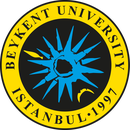
International Conference on Eurasian Economies
1-3 July 2014 – Skopje, MACEDONIA
Paper detail
Paper ID : 907
Status : Paper published
Language : Turkish
Topic : International Trade and Globalization
Presenter: Ph.D. candidate Ümit Alperen
Session : 7B Uluslararası Ekonomi II
Trade Expectations Theory and China’s Rising: Towards a Peaceful Future?
Ticari Beklentiler Teorisi ve Çin’in Yükselişi: Barışçıl Bir Gelecek?
- Ph.D. candidate Ümit Alperen (Süleyman Demirel University, Türkiye)
- Ph.D. candidate Ahmet Günay (Süleyman Demirel University, Türkiye)
Abstract
Since mid-1990, it has been discussed that China’s economic rise would affect political space. There are some worries that the “rejuvenation” of China as economic, politic, geo-strategic power could challenge to the current international system. Hence this rising has been called “China threat theory” and it could cause a conflict in international system. According to realist school, China’s peaceful rise is almost impossible, so China will threat to the current international system and clash with hegemonic power. They also provide some empirical evidence from history. On the other hand, Liberals expresses that trade provides valuable benefits to any particular states. So, China as a dependent state should avoid from war or conflict, since peaceful trading gives it all the benefits of close ties without any of the costs and risks of war. This paper attempts to examine ‘China’s peaceful rise’ based on interdependence and trade expectations theory within the context of international political economy. To analyze whether China threat or not to the world, we have to know the relationship between economic and politics. Trade expectations theory could explain the rise of China with establishes bridge between incompetence of realist and liberal theories. According to trade expectations theory, the rise of China will be peaceful because of China’s expectations as economically are positive. For this reason, China as a rational actor chooses win-win without risk instead of win-lose or lose-lose. If China’s expectations turn into negative in future, its policies could change from cooperation to conflict.
JEL codes: F59, N15
Alperen, Ümit, Günay, Ahmet (2014). "Trade Expectations Theory and China’s Rising: Towards a Peaceful Future?" in Proceedings of International Conference of Eurasian Economies 2014, pp.428-437, Skopje, MACEDONIA.
DOI: https://doi.org/10.36880/C05.00907
Session 7B: Uluslararası Ekonomi II




